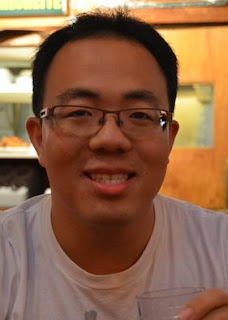

Last night at our summer fellowship, one of the recent Law School graduates spoke about his reasons for choosing that route and how his faith impacted that. For him, essentially, it didn't. He spoke of having made a "prudent and respectable" choice of pursuing a "prudent and respectable" career that would provide financial security and social status. The "prudent and respectable" version of Christian faith in which he had been raised played little or no part in his choices and certainly raised no challenge to them.
However, just prior to entering Law School, he began reading the gospels and was struck by the way Jesus often challenged the "prudent and respectable" way of life!
"Sell what you have and give it to the poor..."
"No one can serve two masters... You cannot serve God and Mammon..."
As he has completed Law School and is moving on, he very much feels the tension between " the prudent and respectable" life and the call to follow Jesus.
His story resonated with lots of us (including me as we were meeting for the first time in our nice new condo!) and generated thoughtful reflections and prayer.
After everyone left, I thought of two people from history who likewise were raised in settings of financial security and social prestige and how they responded to that context when the Holy Spirit upended their life by a call to follow Jesus: Francis of Assisi and Wilbur Wilberforce.
Francis, to the horror of his family, really did sell all and give to the poor, literally walking away naked from the expectations his "prudent and respectable (and wealthy)" family had for him.
Wilberforce, a member of the British parliament and also a man of great wealth and social power, remained in his role but embraced it in a radically new way that ended up deeply impacting the
political and economic life of the nation as he used his position to advocate for the abolition of the slave trade and other moral reforms.
These two men, deeply devoted to Christ, took very different paths when faced with what it means to follow Jesus. Had they been contemporaries I wonder what they would have thought of each other?
Would Wilberforce think Francis was simply being escapist, running away from the social responsibilities and opportunities his status as a wealthy merchant's son had opened up for him?
Would Francis have seen Wilberforce as being a compromiser, remaining part of a tainted institution and holding on to his wealth and position instead of obeying Christ's call to be fully devoted to him?
Yet in hindsight Christians of all stripes greatly admire the very different lives of both these men in light of the legacy they left. Both are seen as examples of committed faith. But...which example should these Yale students in my living room follow? Which should I follow?
Four things are clear to me.
One is that there is not just one path that is faithful. Maybe some of these students in the room will decide that that the call to faithfulness for them is such that they need to walk away from the expected trajectory of where their degrees should lead them to a very different sort of life. Others will decide that their path is to embrace the position they have but infuse it with faithfulness to Christ (that's certainly the implicit assumption that underlies IVCF's ministry as we talk about integration of faith and life).
Second it's clear that both paths involve risk, faith, the possibility of failure, and courage. Neither Francis nor Wilberforce had any guarantee that things would eventually develop as they did. Both experienced times of deep struggle and disappointment and the "daily grind" of just doing what needs to be done. Both had to undergo a radical reorientation of their lives. I suspect there are many, many other unknown disciples of Jesus who made similar choices who left no such public record and perhaps ended their lives wondering if the choices they made really mattered after all. Hebrews 11 makes it very clear that not all people of faith see the fruits of their faithfulness in this life.
Third is that it's critical to keep making the choice to follow. Luke's gospel calls us to "take up the cross daily" (9:23). In making that choice daily, we will be walking the right way. The fact this Law School grad is asking these questions is a good sign that the Holy Spirit is indeed leading him along even though he is not clear what that means right now. It'll be clear when it's needed.
Fourth, as several people commented last night, the vocational choices we make are secondary to the choices we make regarding our character and relationships. Whatever we do regarding work, we are to be holy, loving, and just. That is clearly God's will for us whether we become monks or senators!
I love the closing prayer used in Episcopal worship services and it's very relevant here:
"... Send us now into the world in peace,
and grant us strength and courage
to love and serve you
with gladness and singleness of heart;
through Christ our Lord. Amen.."
May that prayer be the background for the choices we all make for the long term and for today.










